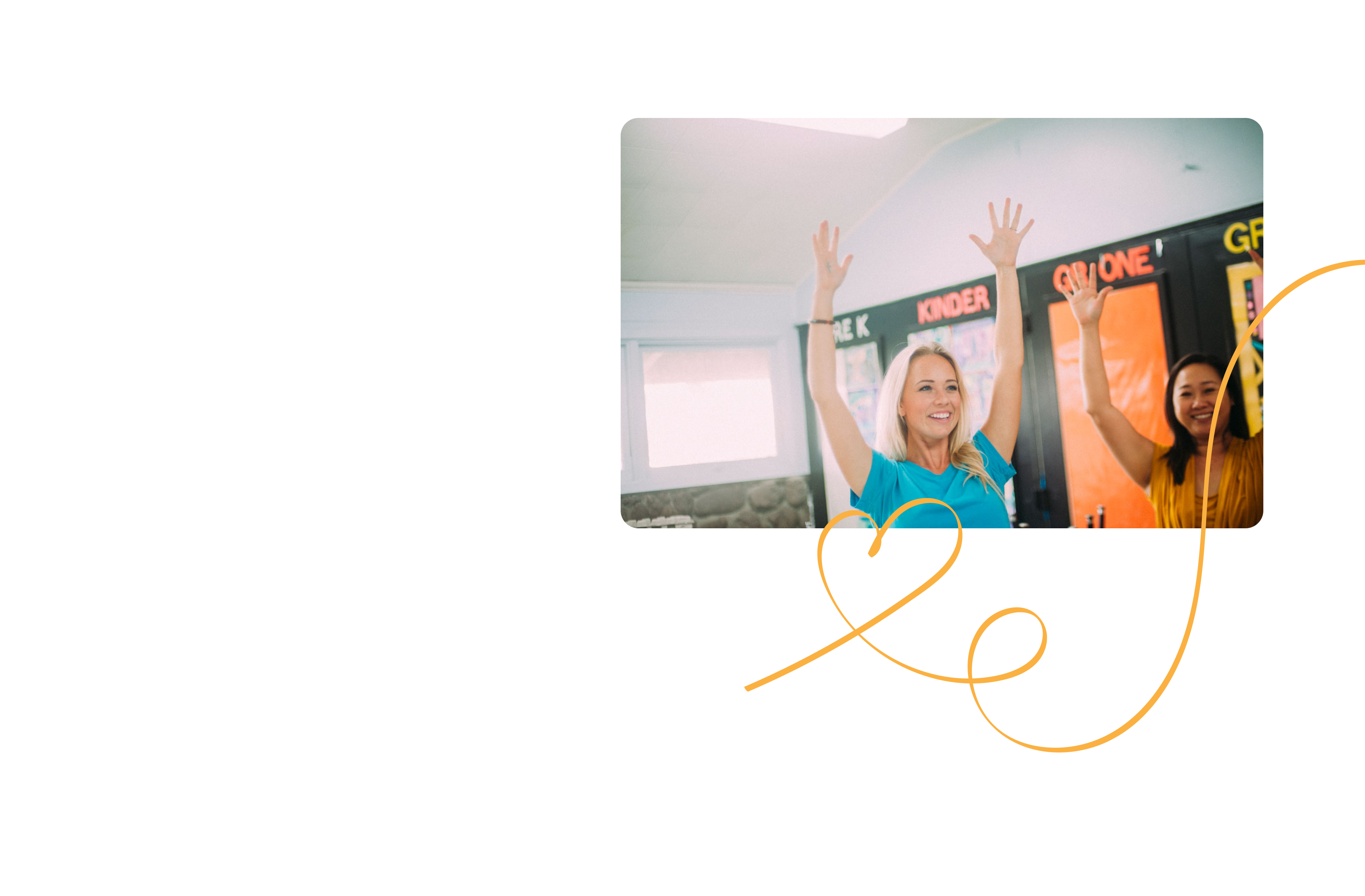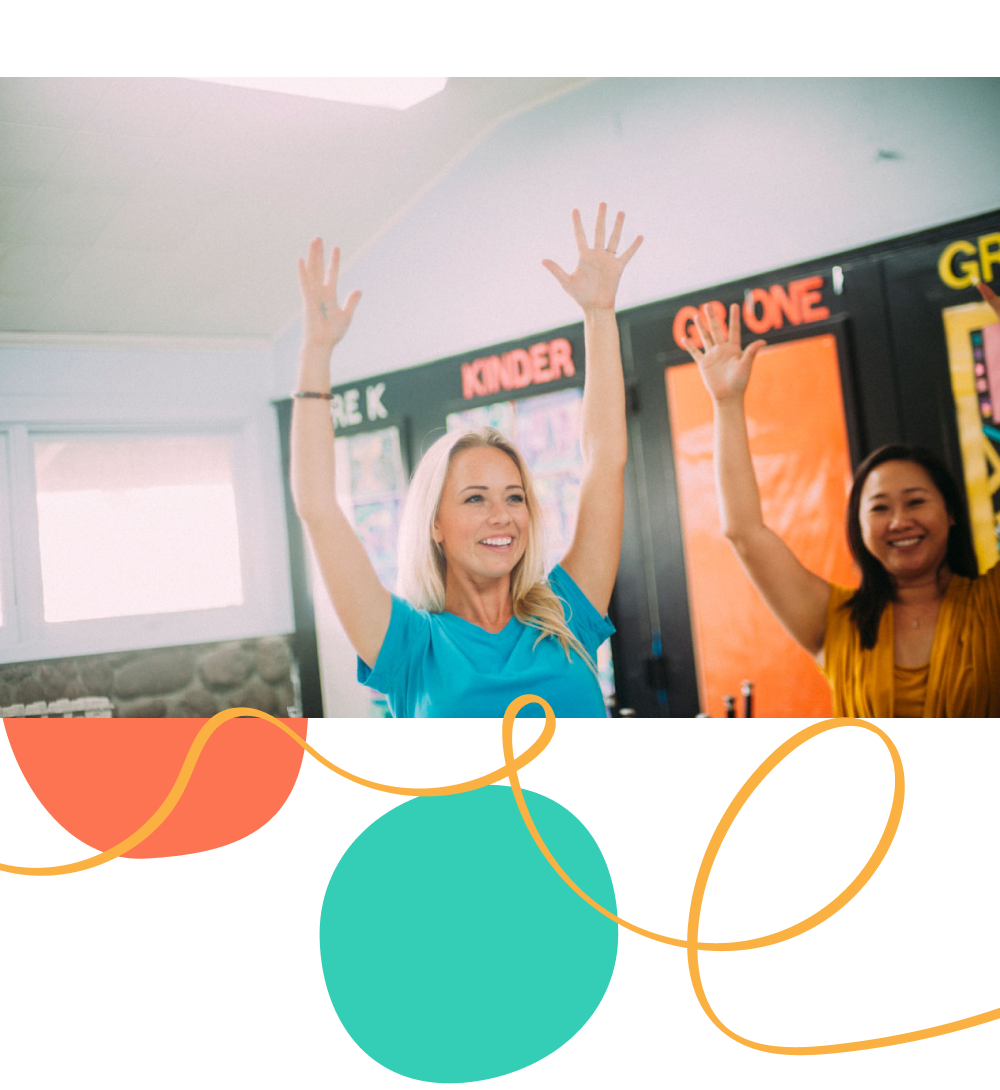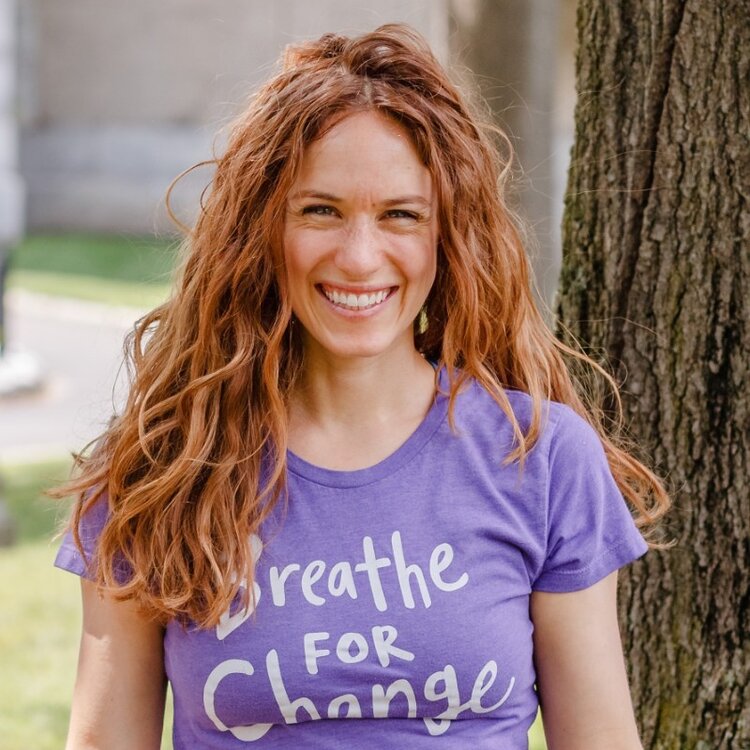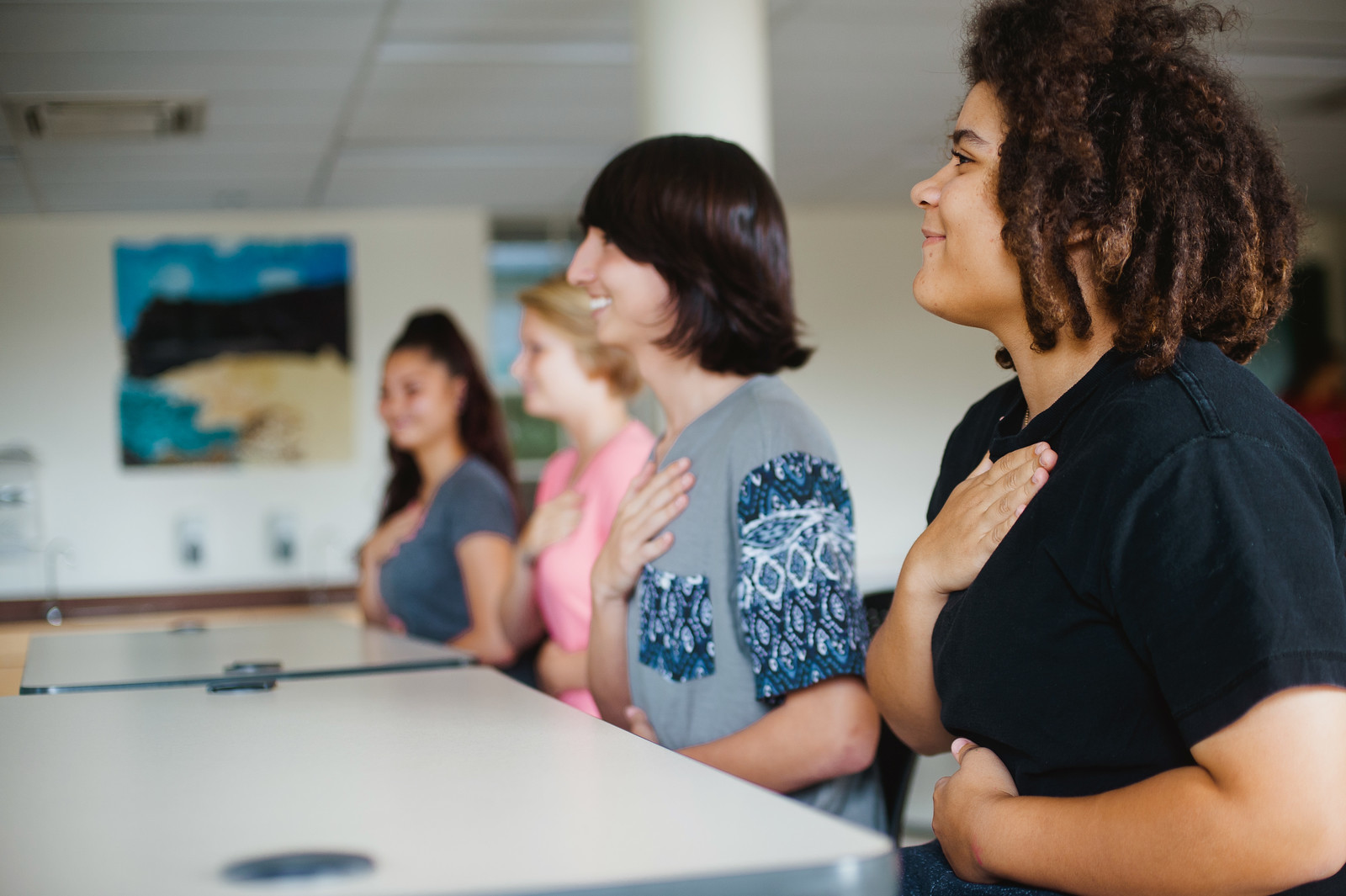If you’re here, chances are you’ve been carrying a lot lately. Lesson plans. To-do lists. Big feelings (yours and your students’). And maybe even a few things you haven’t even had time to name yet.
And while you’re doing your best to keep it all together, maybe there’s a quiet voice inside asking, “How much longer can I keep this up?”
If that sounds too familiar, please know this: you’re not alone.
And we see you. We feel what you’re holding. And we’re here with you.
Teaching asks so much of your mind, your time, your heart. And in the midst of pouring into others, it’s easy to forget your own need for care, rest, and renewal.
That’s why we created this guide – for you. To remind you that your well-being isn’t a luxury; it’s essential. And that even in the middle of chaos, there is space for you to breathe, to feel supported, and to reconnect with what grounds you.
Professional development that cares for you, too
Inside, you’ll find free and low-cost professional development resources that don’t just sharpen your skills, but they help you breathe, restore, and reconnect to your “why.”
But remember: These aren’t magic fixes or toxic positivity mantras. Instead, they’re small, meaningful starting points. Take them as gentle invitations to take a breath and explore what might help.
1. Greater Good in Education
Developed by UC Berkeley’s Greater Good Science Center, this platform blends academic rigor with emotional intelligence. Its practices are short, science-backed, and deeply rooted in compassion.
This collection is for educators who often place their own wellbeing last. Rooted in the science of emotional regulation, these practices encourage teachers to approach themselves with kindness—especially during moments of stress or self-criticism. They’re designed to reduce burnout and increase resilience from the inside out.
- Short audio-guided reflections
- Journaling prompts that build self-awareness
- Simple practices for developing self-kindness over time
Stress Management for Educators Practices
Tailored specifically for the classroom context, this resource collection offers proactive, daily strategies to prevent and respond to stress. Each practice supports emotional balance while helping educators stay present, focused, and energized.
- Breath-based grounding techniques
- Short mindfulness practices to integrate into transitions
- Tips for reframing challenging thoughts and staying regulated
SEL for Adults: Self-Awareness and Self-Management practices (Source: Greater Good in Education)
Mindfulness for Adults Practices
Created for teachers and school staff, these mindfulness practices build attention, presence, and emotional regulation. Each session is bite-sized and accessible, perfect for weaving into your morning routine or classroom breaks.
- Guided breathing, body scans, and loving-kindness meditations
- Audio clips ranging from 5 to 15 minutes
- Designed for personal grounding or whole-class engagement
2. CASEL Webinar Archive
For educators and school leaders who want to stay connected to the latest thinking in SEL, CASEL’s webinar archive is a goldmine. It offers real-time insight from practitioners and researchers, with a balance of strategic frameworks and practical tips that support both system-level change and day-to-day educator wellbeing.
CASEL past events and webinars archive (Source: CASEL)
“Social and Emotional Learning and Teacher Well-being”
This webinar explores the vital link between educator wellbeing and effective SEL implementation. It’s designed for teachers, administrators, and PD leaders who want to integrate SEL not just into student programs—but into adult practice, culture, and support systems.
- Insights on how SEL impacts teacher mental health and job satisfaction
- Panel discussion with school leaders and wellness experts
- Research-informed strategies to strengthen staff wellbeing schoolwide
“Online, Offline, and Beyond: Skill-Building Strategies for Digital Well-being”
As screens become a constant part of the classroom, this webinar helps educators navigate digital fatigue and model healthy tech habits. It offers a balanced approach to digital wellbeing—beneficial for both teachers and students.
- Tools for managing screen time and social media use
- Tips to help students build self-regulation online
- Guidance for educators to protect their energy and focus in digital environments
“Cultivating Adult SEL through Staff Meetings”
This session reframes the traditional staff meeting as a powerful space for connection, reflection, and SEL skill-building. Perfect for school leaders or teacher-leaders, it offers practical strategies for infusing relational trust and emotional support into regular team time.
- Sample SEL-infused agendas for staff meetings
- Real-world examples from school leaders
- Guidance on modelling emotional intelligence and vulnerability
3. Coursera
Coursera partners with top universities to offer self-paced online courses. Educators can explore a wide range of free topics, including personal wellness and classroom culture.
“The Science of Wellbeing” by Yale University
This globally acclaimed course unpacks the psychology of happiness and helps participants build science-backed habits to boost personal wellbeing. Designed for anyone ready to reflect and grow, it’s particularly valuable for educators navigating chronic stress or fatigue.
- Evidence-based strategies to increase happiness
- Reflective exercises and habit-tracking tools
- Accessible format with short weekly video lectures
“The Science of Wellbeing” course by Yale University (Source: Coursera)
“Vital Signs: Understanding What the Body Is Telling Us” by University of Pennsylvania
Educators often miss early signals of physical burnout. This course empowers you to better understand your body’s cues—so you can respond to stress, fatigue, and overwhelm before they escalate.
- Simple breakdowns of heart rate, temperature, blood pressure, and more
- Lessons that connect physical signals with mental health indicators
- Great for developing body awareness and self-advocacy in healthcare conversations
“Positive Psychiatry and Mental Health” by The University of Sydney
This course explores the foundations of mental health through a strengths-based lens, offering tools to nurture your own wellbeing and recognise challenges in others. It’s especially useful for educators supporting both student and staff mental health in high-pressure settings.
- Modules on resilience, lifestyle medicine, and happiness science
- Deep dives into mental health conditions and care systems
- Emphasis on prevention and self-care strategies
4. Breathe For Change Free Online Conferences for Educators
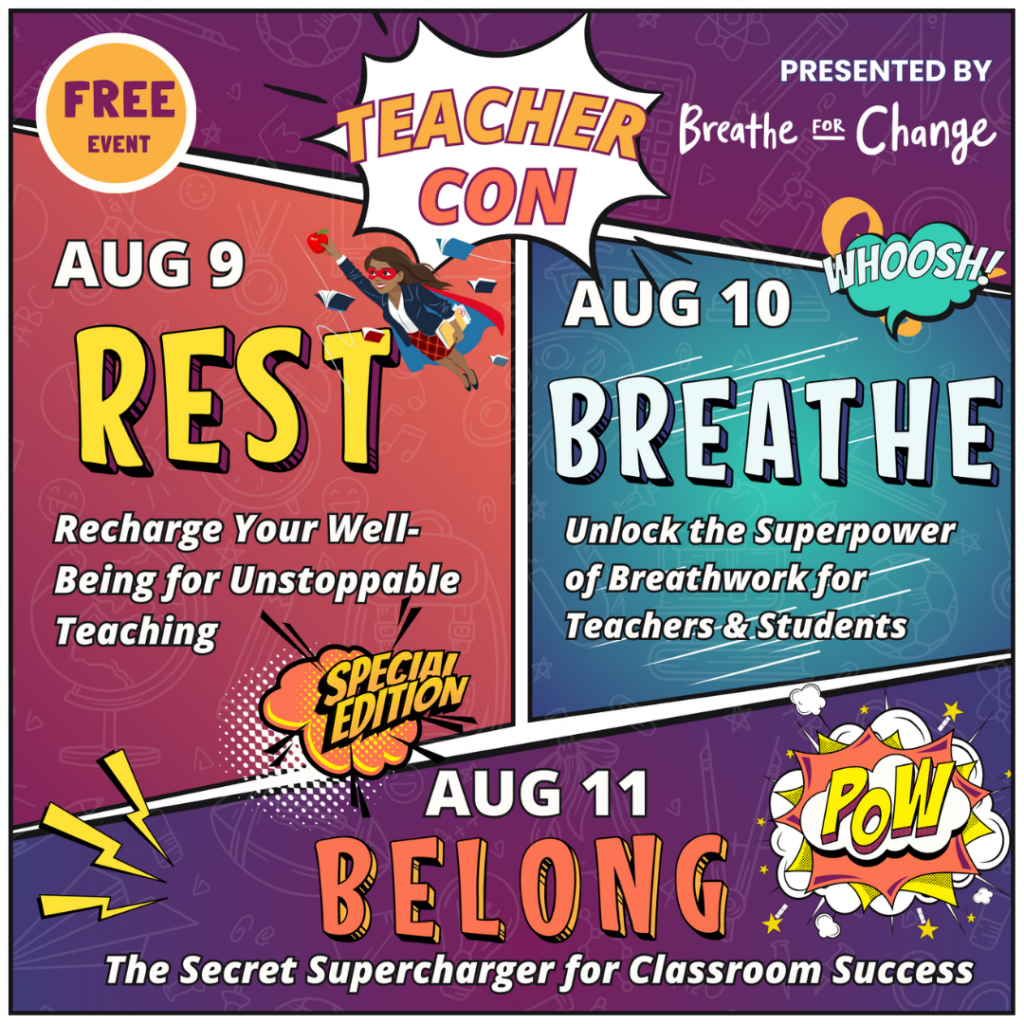
Poster from 2024 TeacherCon (Source: Breathe For Change)
Breathe For Change hosts quarterly, multi-day online conferences designed specifically for educators. These events are completely free and offer PD certificates of attendance for those who join live. Each conference centers around educator wellbeing and features expert speakers from across the wellness, education, and SEL spaces.
You can expect:
- Uplifting keynotes from wellness leaders and SEL practitioners
- Practical tools you can use in and out of the classroom
- Dedicated spaces for reflection, movement, and mindfulness
- Peer connection with like-minded educators across the globe
The next event, TeacherCon, is coming this August! Our ultimate back-to-school conference celebrates educators as the true superheroes you are. Over three days of energizing online sessions, you’ll gather the “power-ups” you need to start the school year feeling refreshed, inspired, and ready for anything.
Want to be the first to grab free passes when they’re released? Sign up for our newsletter and stay in the loop!
5. Breathe For Change Resource Library
Perfect for educators who are seeking gentle, actionable ways to introduce wellness into their teaching and personal routines. This library was created by teachers, for teachers, with a focus on integrating mindfulness and SEL into everyday classroom life. Whether you’re looking to manage your own stress or share calming practices with students, these resources are approachable and ready to use.
Trauma-Informed Mindfulness & SEL Strategies to Support Student and Educator Well-Being
This guide supports educators in creating safe, inclusive spaces with mindfulness practices rooted in trauma-informed care. Grounded in neuroscience and educator experience, it helps teachers meet their own emotional needs while nurturing student wellbeing.
- Adaptable strategies for individual and group use
- Guidance aligned with SEL and equity frameworks
- Practical tools for classroom, virtual, or personal use
Breathe For Change Resource Library (Source: Breathe For Change)
How to Reduce Stress & Burnout, a Toolkit for Educators
A practical guide to help educators proactively manage stress, prevent burnout, and reconnect with their purpose. This toolkit integrates mindfulness with actionable wellness strategies.
- Tools and strategies for daily resilience, reflection, and renewal
- Promotes holistic wellbeing for sustained impact in education
- Ideal for solo use or as part of a staff-wide wellbeing initiative
3 Grounding Tools to Manage Anxiety
This downloadable guide is designed to help educators quickly regulate stress and restore calm, both in the classroom and personally. It introduces simple, research-informed techniques that educators can use throughout the day to anchor themselves emotionally.
- Practical, easy-to-use mindfulness exercises
- No special equipment or setup required
- Can be used for personal self-care or modeled with students
Deepening the support: Why educator wellbeing needs to be ongoing
These tools are a great start—but lasting impact comes from consistent support and connection.
To truly support educator wellbeing, we also need to name what’s underneath the burnout. Because this work isn’t just stressful—it’s emotionally consuming in ways few outside the classroom fully understand.
Teaching was never an easy job. But in today’s climate, it’s becoming emotionally unsustainable.
Across the U.S., nearly half of all K–12 teachers say they feel burned out “always” or “very often”, which is a higher rate than any other profession. Yes, even higher than healthcare workers still reeling from the pandemic’s frontlines.
And the emotional toll is staggering. Teachers are 40% more likely to report anxiety symptoms than nurses, 30% more than lawyers or farmers, and 20% more than your average office worker.
For many, the pressure becomes too much. In one University of Missouri study, 78% of educators admitted they’d considered leaving the profession altogether. And it’s not hard to see why: crushing workloads, shrinking resources, rising classroom challenges, and too little support. When you’re constantly pouring from an empty cup, something has to give.
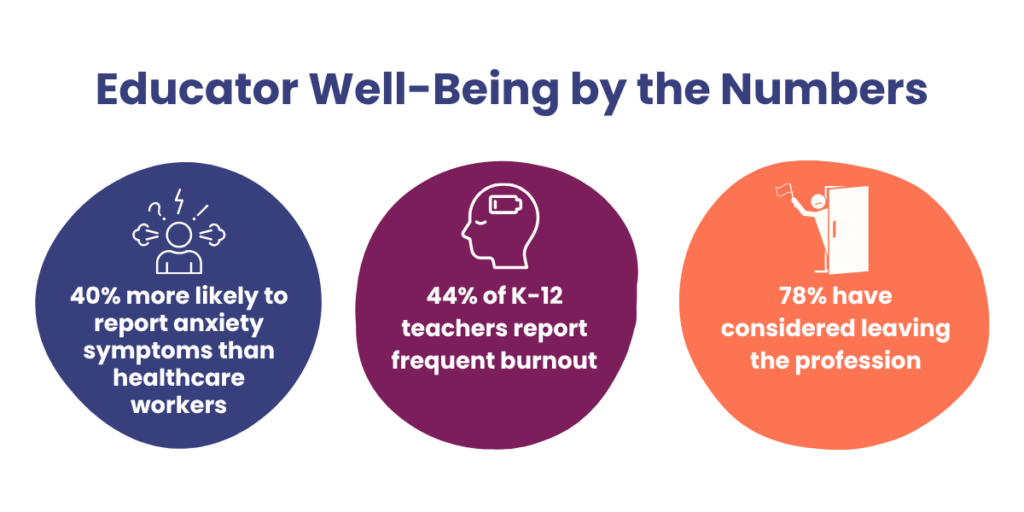
What’s rarely spoken aloud—but deeply felt—is the emotional labor baked into teaching. The unspoken weight of absorbing student trauma. The compassion fatigue. The vicarious stress. This work asks you to care deeply, constantly—and then penalizes you for needing care yourself.
And while there’s growing interest in social-emotional learning (SEL), most professional development still treats wellbeing as an afterthought. Tick-the-box workshops. One-size-fits-all training. An extra demand on an already overflowing plate.
But educator wellbeing isn’t a “nice-to-have.” It’s the bedrock of everything else. When teachers feel grounded, present, and emotionally supported, students feel it, too.
So maybe it’s time we stop asking educators to “power through.” And start giving them what they deserve: real, sustained, human-centered support.
Your wellbeing matters—here’s to your next step
Burnout doesn’t happen all at once. It creeps in quietly, built from hundreds of unnoticed moments when your needs were set aside for someone else’s.
That’s why small steps count.
You don’t need to tackle everything at once. Start where you are. Try what feels doable. Bookmark what doesn’t.
Remember, self-care is not a race. Your wellbeing isn’t measured by your productivity. It matters because you matter. As an educator. As a human.
If you’re ready for deeper support, Breathe For Change also offers extended training and degree programs designed to nurture both personal wellness and professional impact. You don’t have to do it alone. Join our community today.

